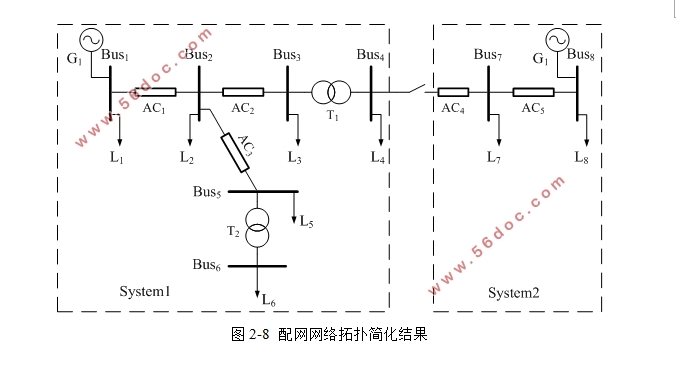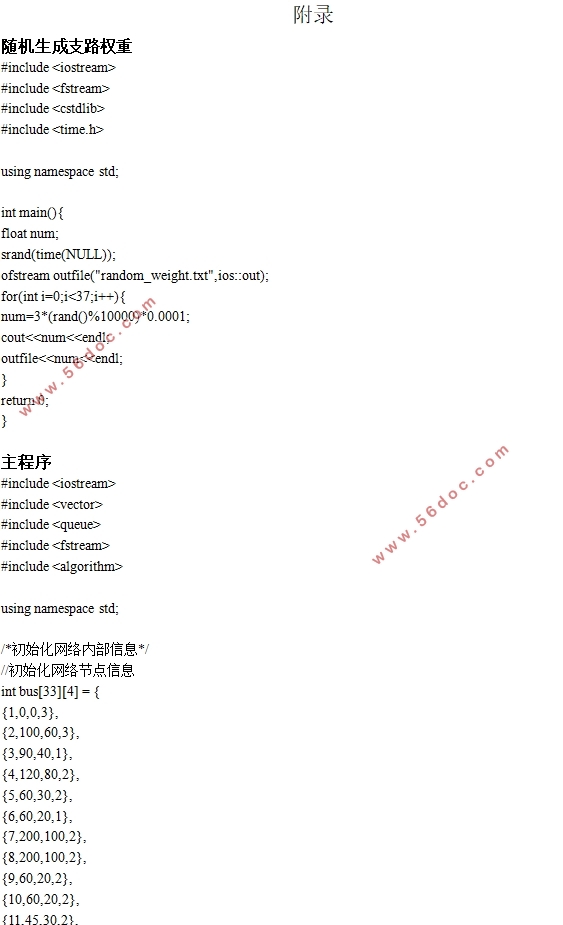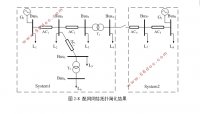智能配电网故障恢复决策系统的设计(任务书,开题报告,论文25000字)
摘要
近年来,国内外发生多起停电事故,严重影响着人们的生产生活。调查表明,大部分故障发生在配网侧,配电网网络拓扑复杂,关联的设备繁多,其发生故障时间和空间的不同决定故障后恢复策略的多变。并且随着分布式电源(DG)高渗透和负荷需求侧管理方面的弹性提升,配电网在管理、控制和恢复方面具有更加灵活的操作性。为保证配电网安全平稳运行,提高供电的可靠性,应该充分利用配网中的联络备用和DG恢复重要负荷。
目前,针对配电网故障恢复的策略有许多可行的方法。但是,在分布式电源接入电网中后,会相对应的增加处理故障的难度,所以需要提出一种能够解决这一难题的方法。在本文中,提出了一种分阶段的恢复方法。首先,是利用分布式电源对重要等级较高的负荷进行恢复供电,这样,在一定程度来说提高了网络的供电可靠性能。根据分布式电源的容量和网络的拓扑结构,确定孤岛可行范围内的最优恢复负荷集合,按照其断开对应的开关组合,给重要负荷形成孤岛运行恢复供电。其次,再通过对剩余的网络结构进行更新,闭合网络中的联络开关形成环网,进行寻优方案选择,从而达到网损最小的目标。
关键词:智能配电网 故障恢复 分布式电源
The Design of Fault Recovery Decision System for Smart Distribution Network
Abstract
In recent years, there have been many blackouts happened worldwide, which have seriously affected people’s production and life. The investigation shows that most of the faults occur on the distribution network side. Distribution network topology is complex and there are many related devices. The different time and space of the faults determine the changeable recovery strategies after the faults. In addition, with higher permeability of distributed generation (DG) and flexibility of load demand side management, distribution network has more flexibility in management, control and recovery. In order to ensure the distribution network’s safe and stable operation and improve the power supply’s reliability, it is necessary to make full use of the lead-in wire reserved and DG to restore important loads in the distribution network.
At present, there are many feasible methods for the strategy of fault recovery in distribution networks. However, after distributed generation is connected to the power grid, the difficulty of processing the fault will increase correspondingly. Therefore, a method that can solve this problem needs to be proposed. First of all, it is to use distributed power to restore power to higher-critical loads, which, to some extent, improves the reliability of the network's power supply. According to the distributed generation capacity and the network’s topology structure, the optimal recovery load set within the feasible range of the island is determined, and the isolated load switch combination is combined to restore and supply power to islands for important loads. Secondly, by updating the remaining network structure, closing the connection switch in the network to form a ring network, and selecting the optimization solution for the unlooping switch combination, so as to achieve the goal of minimum network loss.
Key Words: Smart distribution network; Fault Recovery; Distribution Generator


目 录
摘要 I
Abstract II
目录 III
第一章 绪论 1
1.1 课题研究背景 1
1.2 配电网供电故障恢复现状 2
1.2.1 传统配电网的供电恢复 2
1.2.2 含DG配电网的供电恢复 3
1.3 配电网恢复策略现状 3
1.3.1传统的数学优化算法 4
1.3.2启发式的搜索算法 4
1.3.3人工智能算法 4
1.4 论文研究的主要内容 6
第二章 基于图的配电网拓扑结构分析 7
2.1 基于图的网络拓扑分析 7
2.1.1 图的基本原理 7
2.1.2 图的表示法 8
2.1.3 基于图的配电网拓扑搜索 10
2.2 配电网的结构分析 13
2.3 本章小结 15
第三章 配电网的潮流计算 16
3.1配电网的潮流计算原理 16
3.1.1 三种电力系统中的节点类型 16
3.1.2 复杂电力系统的潮流方程 16
3.1.3 潮流计算的约束条件 17
3.2配电网的潮流计算方法 18
3.2.1 牛顿-拉夫逊(N-R)算法 18
3.2.2 前推回代法 25
3.2.3 各潮流计算方式比较 27
3.3本章小结 27
第四章 含DG配电网的故障恢复 28
4.1 配电网中的负荷 28
4.1.1 配网中负荷的类型 28
4.1.2 配电网负荷的可控性 29
4.2 配电网中的分布式电源 29
4.2.1 配电网DG的基本类型 30
4.2.2 配电网DG的运行控制方式 32
4.3 配电网恢复数学模型 33
4.3.1 目标函数 33
4.3.2 约束条件 34
4.4 含DG配电网故障恢复方案 34
4.4.1 含DG配电网故障恢复简介 34
4.4.2 含DG配电网故障恢复流程 35
4.5 算例分析 36
4.6 本章小结 42
总结 44
参考文献 45
附录 48
|





